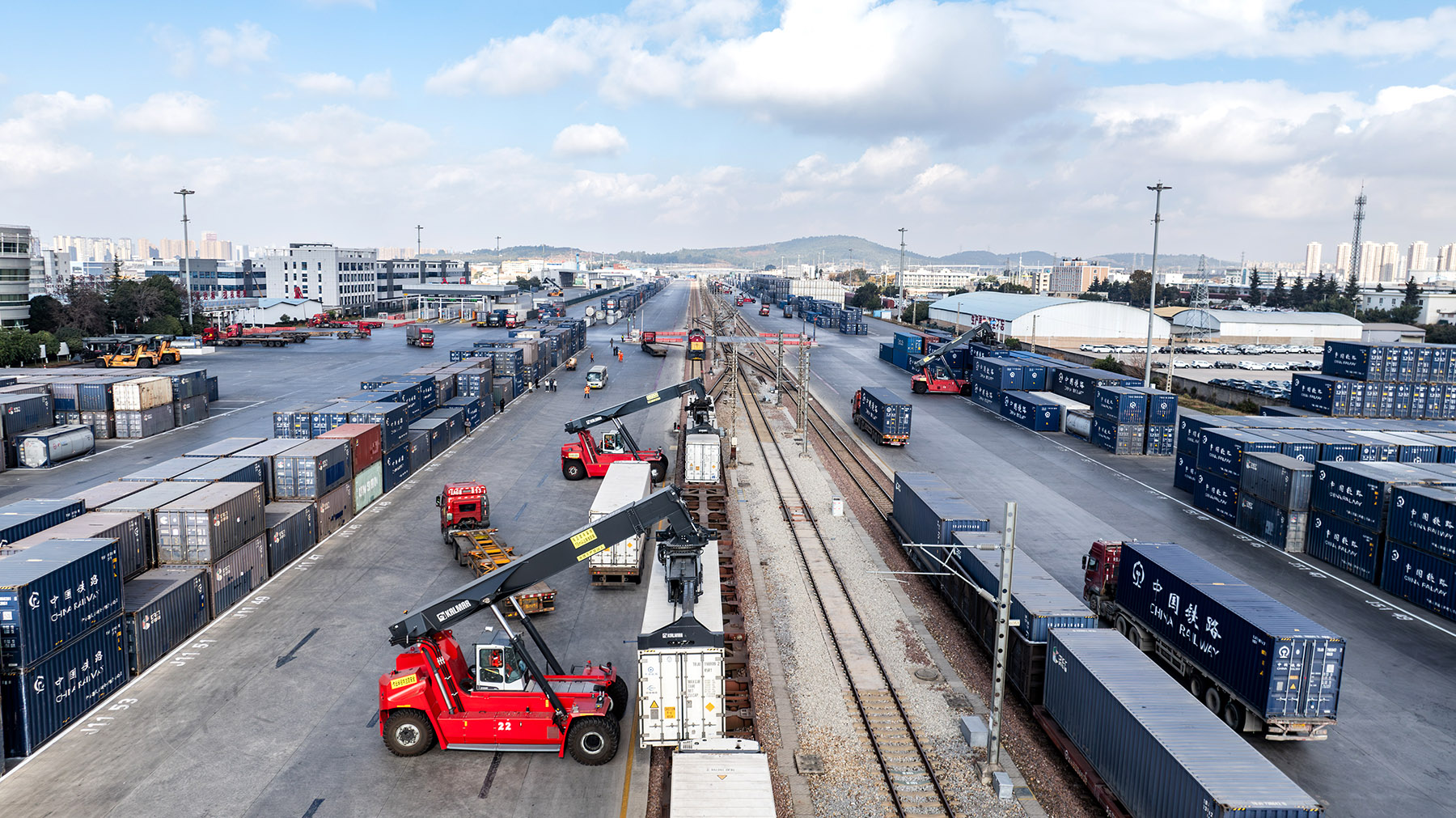
Yunnan province has sustained strong foreign trade growth thanks in large part to deepening cooperation with member states of the Association of Southeast Asian Nations, a dynamic that underscores the strength of China-ASEAN economic ties despite mounting global trade protectionism, said experts.
According to Kunming Customs, ASEAN has remained Yunnan's largest trading partner for 20 consecutive years. In 2024, trade between Yunnan and ASEAN reached 109.32 billion yuan ($15.1 billion) while in the first quarter of this year alone, bilateral trade totaled 23.96 billion yuan.
As China's gateway to South and Southeast Asia, Yunnan has seen increasingly close economic and trade cooperation with ASEAN in recent years. "The province's growing foreign trade potential continues to inject strong momentum into regional economic integration," said Kunming Customs.
READ MORE: Report: China, ASEAN most appealing in Asia for foreign investments
Of the total trade volume, Yunnan imported 3.22 billion yuan's worth of agricultural products from ASEAN, up 26.5 percent year-on-year, and exports of agricultural goods reached 2.98 billion yuan, marking a 23.1 percent increase.
Notably, exports of fruits and nuts surged by 132.6 percent compared to the same period last year.
Fruits produced in Yunnan are highly complementary with those of ASEAN economies, and the establishment of a cross-border fruit corridor — bringing tropical fruits north and temperate fruits south — has enhanced the complementary trade advantages between China and ASEAN economies, fostering mutually beneficial cooperation, according to Kunming Customs.
"Yunnan enjoys geographic proximity and longstanding cultural ties with neighboring regions," said Zhou Mi, a senior researcher at the Chinese Academy of International Trade and Economic Cooperation.
"Recent progress in infrastructure and logistics has laid a further solid foundation for Yunnan and ASEAN to deepen cooperation based on their respective strengths," Zhou added.
Bai Ming, a researcher at the Chinese Academy of International Trade and Economic Cooperation, said that as China and ASEAN economies both prioritize manufacturing development, agreements covering the RCEP (Regional Comprehensive Economic Partnership) and the China-ASEAN Free Trade Area have strengthened industrial linkages. Improved logistics infrastructure between Yunnan and ASEAN economies has also helped remove traditional trade barriers and unlock new business opportunities.
Yunnan's collaboration with ASEAN offers a valuable model for broader China-ASEAN cooperation.
"Border and cross-border economic cooperation zones have played a key role in fostering industrial complementarity, strengthening supply and value chains, and enhancing regional economic resilience," said Bai.
Data from the General Administration of Customs reveal that in 2024, ASEAN remained China's largest trading partner, with total bilateral trade reaching 6.99 trillion yuan, up 9.0 percent year-on-year and accounting for 15.9 percent of China's total foreign trade.
Exports to ASEAN stood at 4.17 trillion yuan, a 13.4 percent increase, while imports from ASEAN totaled 2.82 trillion yuan, up 3.2 percent.
Commenting on the US tariffs, Zhou noted that their impact extends to neighboring countries, placing shared pressure across the region.
"However, enhanced cooperation among regional partners can help mitigate these effects, reduce overreliance on external markets and strengthen economic resilience within the region," he said.
ALSO READ: China diversifying market amid global trade volatility
Undoubtedly, the trade conflict has had a negative impact on many countries, said Wang Yuzhu, an academic director of the Greater Bay Area-ASEAN Research Center at Shenzhen University.
"Trade wars benefit no one and are bound to have negative economic consequences," he said.
Regardless of the global environment, regional collaboration remains the cornerstone of sustainable growth, and Wang believed that the cooperation between China and ASEAN should be seen as long-term.
Contact the writers at yinmingyue@chinadaily.com.cn


